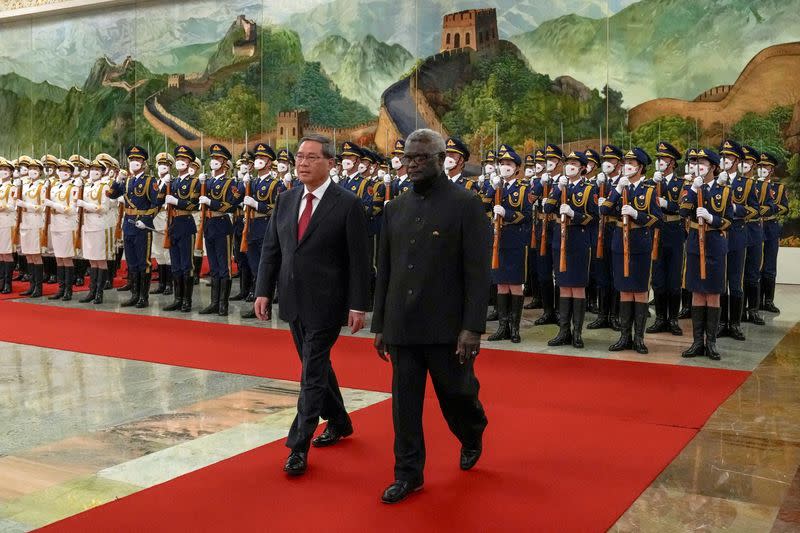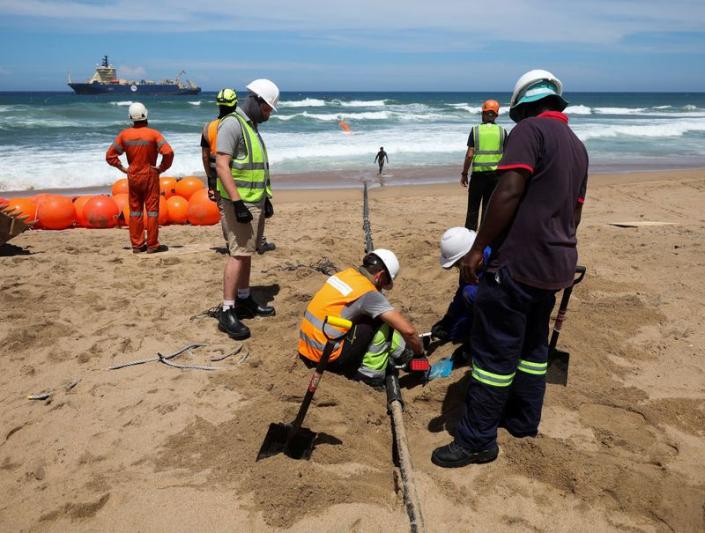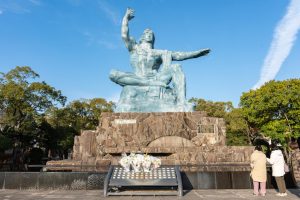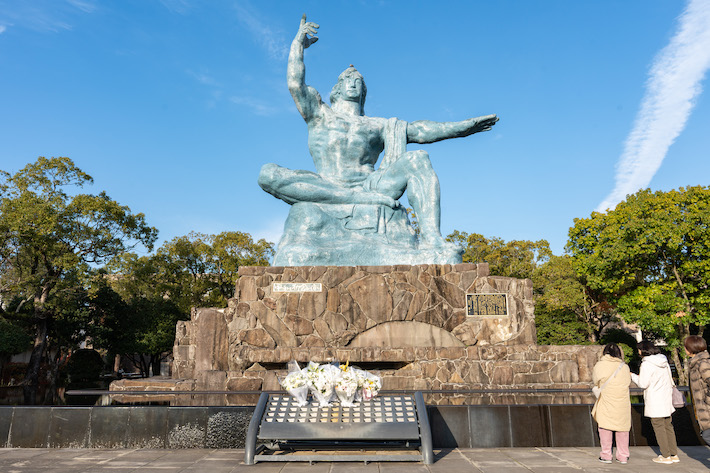The Biden Administration is backing a new underwater cable that would provide high-speed internet to islands in the Pacific.
The Central Pacific Cable would connect US territories such as American Samoa with Guam – home to a US military base – and link to a dozen other islands, according to a document showing the cable route.
The move is one of many studied by Washington to boost its interests in a region where China is also vying for influence.
The new cable could connect the US territories with Papua New Guinea, Samoa, Tuvalu, Fiji, Nauru, Marshall Islands, Kiribati, Cook Islands, Wallis and Futuna and the Federated States of Micronesia, the plan showed.
ALSO SEE: Shares of China Evergrande, Its Property and EV Units Suspended
First link to Tuvalu, 3-5 year project
Details of the cable were displayed at an industry conference in Singapore by developers Paul McCann and John Hibbard, two veteran subsea cable consultants. APTelecom, a US-based telecoms consultancy, is carrying out the feasibility study, but the firm and developers declined to comment.
Further funding for the project would most likely come from multilateral donors such as the World Bank and aid agencies in the United States, Australia, New Zealand, the plan said.
Undersea internet cables typically take at least 3-5 years to be developed and installed. The proposed cable would stretch thousands of kilometres.
A White House fact sheet released on Monday after a meeting between Pacific Island leaders and President Joe Biden in Washington confirmed the US Trade and Development Agency would fund a $3-million feasibility study for the cable. The statement didn’t state the countries involved.
This would be the first undersea cable connecting Tuvalu, a tiny nation of about 11,000 people, the USTDA said in a post on its Facebook page.
Undersea fibre-optic cables, which criss-cross the ocean floor and transmit 99% of transcontinental internet traffic, have become a key arena of competition between the US and China, as reported several months ago.
The Pacific islands, which form a vast arc to the north of US ally Australia, are strategically important for US naval movements and are home to valuable minerals and fisheries.
Island nations in the Pacific have vulnerable internet infrastructure. Tonga was cut off from global telecommunication networks for a month last year after a volcanic eruption and tsunami severed its only undersea cable.
Last year, the Biden administration pledged to help Pacific islanders fend off China’s attempts at “economic coercion”. Beijing signed a security agreement with the Solomon Islands last year, prompting fears of a militarization of the region.
Washington intervened two years ago to block a Chinese company from building another subsea internet cable in the Pacific islands.
The US, Australia and Japan this year agreed to pay for and revive that project, known as the East Micronesia Cable. It will connect the Island nations of Nauru, Kiribati and Micronesia.

Solomons PM avoids US ‘lecture’
One notable omission from the summit in Washington was Solomons Prime Minister Manesseh Sogavare, who said he skipped the Pacific Island leaders summit at the White House to avoid a “lecture” and “more pressing issues” at home.
Sogavare, who has built close ties with China, held a press conference on Wednesday after arriving back in Honiara from New York, where he spoke at the United Nations but did not join other Pacific Island Forum leaders in Washington for a two-day summit.
US President Joe Biden met the Pacific island leaders for a second White House summit in just over a year on Monday, part of a charm offensive aimed at curbing inroads by China into a region Washington considers strategically crucial.
Sogavare said he attended the first summit last year and “nothing came out of it”.
“They lecture you about how good they are”, he said, according to a video of the press conference published by Solomon Islands media company Tavuli News on Wednesday evening.
A Biden Administration official said on Sunday they were “disappointed” Sogavare would not attend.
Sogavare said he returned because there were 10 weeks left of parliament at home in Solomon Islands, which was more important.
Papua New Guinea Prime Minister James Marape said in a statement on Wednesday the summit had seen the US make a significant pledge for infrastructure investment, and the meeting was a “significant step towards making the Pacific more secure and prosperous”.
Biden pledged to work with Congress to provide $200 million more in funding for projects in the region aimed at mitigating the effects of climate change, spurring economic growth, countering illegal fishing and improving public health.
At the United Nations General Assembly in New York, Sogavare had praised China’s development cooperation as “less restrictive”.
- Reuters with additional editing by Jim Pollard
ALSO SEE:
China Telecoms to Fund ‘Rival’ $500m Undersea Cable to Asia
US Offers Internet Cable to Africa Amid China Rivalry – SCMP
US Funding Tapped For Pacific Undersea Cable After China Rebuffed
India joins global undersea cable race with Reliance Jio’s help
Huawei submarine cable unit changes name, identity
Google, Facebook told to axe plan for undersea cable to Hong Kong
























